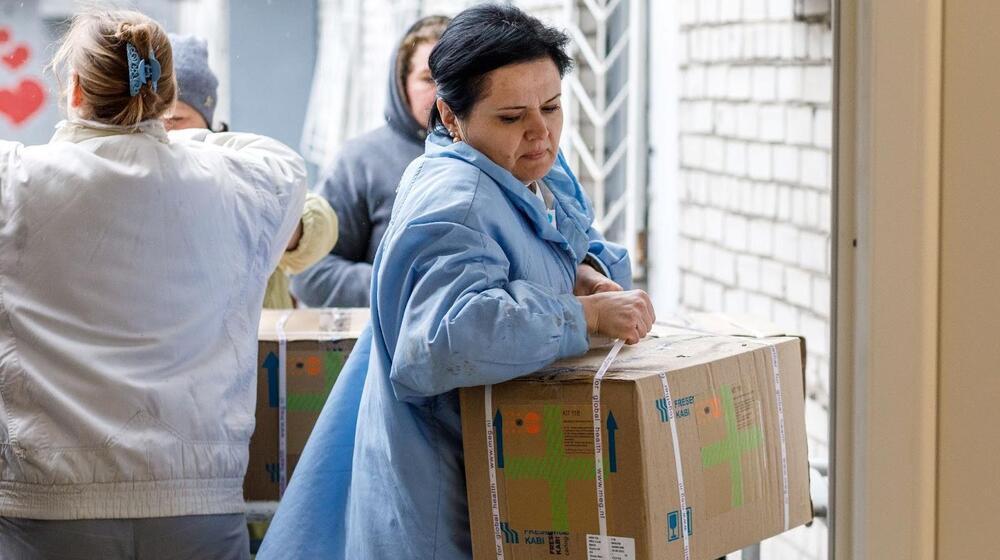UNITED NATIONS, New York – The European Commission has announced a €1.5 million contribution to UNFPA, the United Nations sexual and reproductive health agency, to ensure that women and girls in Ukraine have immediate access to sexual and reproductive health services, including survivors of sexual and gender-based violence.
Since the beginning of the war, more than 8 million people have been internally displaced within Ukraine. The majority are women and girls, including pregnant women who urgently need access to medical care and assistance.
Women and girls are disproportionately impacted by natural and human-made crises as access to essential, life-saving services diminishes and vulnerabilities to gender-based violence increase. “History has shown time and time again that women bear the brunt of wars and conflicts, and the war in Ukraine is no different,” said Janez Lenarčič, European Commissioner for Crisis Management. “The support to UNFPA will fund the immediate humanitarian response for women and girls, including survivors of sexual and gender-based violence, with access to sexual and reproductive health response services. This also includes life-saving medical care,” Lenarčič added.
The grant will also support the establishment of two mobile healthcare units for emergency obstetric and newborn care in war-affected regions, and the procurement and distribution of essential medical supplies and equipment to health facilities, particularly to meet the needs of pregnant women.
Since the beginning of the war, UNFPA has been working around the clock to scale-up the delivery of essential, life-saving services for women and girls, and ensure robust mechanisms are in place to protect them from violence, exploitation and abuse. Reproductive health supplies and equipment, including for obstetric emergencies and the clinical management of rape, have been distributed to mobile health teams and hospitals in war-torn cities across the country. Mobile units, staffed by psychologists and social workers, have also been deployed to 12 cities, providing psychosocial support to women experiencing violence and trauma. Crisis rooms, which provide a temporary, but safe haven for women and children fleeing bullets and bombs, also continue to operate.
“For pregnant women, the crisis in Ukraine is devastating. What should be a time of joy, giving birth, has become very dangerous, especially in areas of active hostilities,” said UNFPA Executive Director Dr. Natalia Kanem. “Thanks to the European Union’s contribution, UNFPA will increase its provision of life-saving reproductive health services and help equip health facilities with much-needed supplies.”
UNFPA’s teams are on the ground, working with donors, local partners and the governments of Ukraine and neighbouring countries to save lives, alleviate suffering and help the most vulnerable first. UNFPA urgently requires funding to respond to the needs of women and girls affected by the war.


